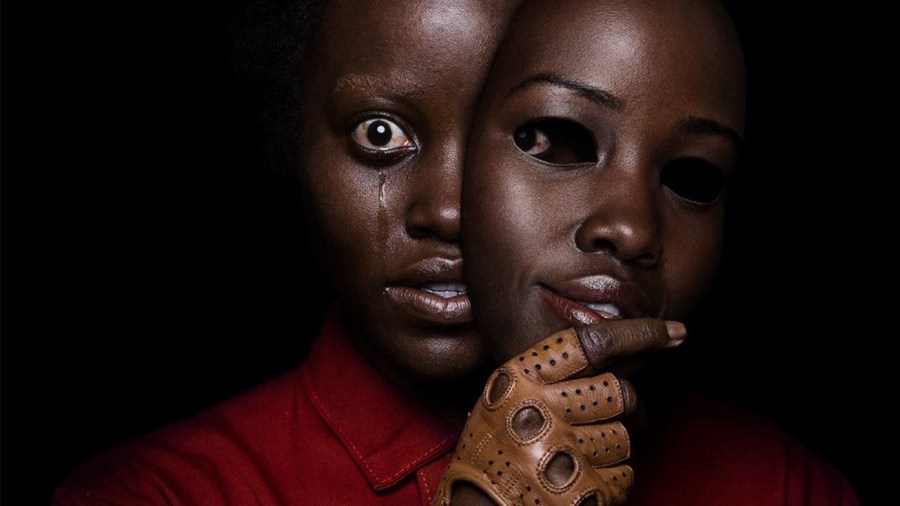Only two years ago, comedian-turned-director Jordan Peele broke out into the scene with his debut feature, Get Out, a social thriller meant to serve as an allegory for race relations in America. Despite its March release, the small budget film turned into a critical and financial juggernaut, raking in over $250 million in profit and scoring four Oscar nominations including Picture, Director, and Screenplay — eventually winning the last. It was an incredible start to Peele’s directing career and one that left viewers in anxious anticipation of the director’s future work. Enter Us.
Peele’s sophomore feature stars Lupita Nyong’o, Winston Duke, Shahadi Wright Joseph, and Evan Alex as the (all black) middle-class Wilson family vacationing in Santa Cruz. When Adelaide’s (Nyong’o) past quite literally comes to haunt her, things take a turn for the strange. Similar to how Get out packaged its story on race into a meet-the-parents narrative, Us is disguised as a home invasion thriller before it reveals itself to be a commentary on what is assumed to be retrospection on American (afterall, Us doubles as U.S.) — and human at large — identity.

Read More: ‘Glass’: M. Night Shyamalan’s superhero trilogy comes to a disappointing end
Early in the film, a man is seen holding a cardboard cut-out that reads ‘Jeremiah 11:11’, referencing the verse in the Bible where God brings wrath to the people for the sins of their ancestors and refuses the people’s cries for help. The verse pops up several times in the film to remind viewers that despite the many themes that make their way to the surface of the film, they’re all rooted in the fact that the biggest monster one must face is oneself and one’s history (think: America’s racial history and continued structural oppression of people of colour). This is evidenced by the film’s Hands Across America reference, a real-life event from 1986 where some 6.5 million Americans held hands across the country to raise money for hunger and homelessness. Though a huge spectacle, the event raised a lukewarm $34 million, only $15 million of which went to the cause.
What is particularly inspired about Us is not how many themes the film has per se (and it has a lot), but the fact that they can all coexist in the same vehicle. This gives Peele’s film a universal characteristic wherein the film becomes a vessel that subjects itself to countless readings: race and representation through portraying a middle class black family as the protagonists; class politics when examining The Tethered’s — the film’s main antagonists — rhetoric; America’s current political climate as can be deduced from The Thethereds’ uniform costume design, and the film’s mise-en-scene and motifs; conversations on nature and climate change; and more.
 Read More: ‘Unsane’: Seeing is believing in Soderbergh’s newest medical thriller
Read More: ‘Unsane’: Seeing is believing in Soderbergh’s newest medical thriller
This universal appeal is equal parts impressive and disruptive. While Us is a film that allows for more discovery on second and third viewings (it ages quite well, I should add), the main narrative is somewhat shaky and fails to resolve all the questions the films posits leading to its third act — which, much like Get Out, is rather rushed (and presented through a revealing monologue towards the end like its predecessor). Many will think about the bigger picture the film tries to point to — and it does so brilliantly — but loopholes in the story at hand leave viewers with more questions than answers. Whether or not Peele’s stature as a director allows him to do that is subject to debate and taste (afterall, as a friend pointed out, David Lynch gets away with it), but one thing is for sure: closure is not on Peele’s mind.
It’s always interesting to see how directors’ work progresses and grows. In his second directorial turn, Jordan Peele starts to experiment with genre. For Us, he draws on his comedic background to produce a film that provides more than a few laughs along the way, in a similar way films like Cabin in the Woods combines two unlikely genres. Horror also plays a large role as palpable references to films like Funny Games and The Shining pop up every now and then, making for a film that both tributes and furthers tropes of thriller and horror filmmaking. In one striking sequence towards the end, the main characters engage in a duel and a juxtaposed ballet dance to the film’s theme — a brilliantly edited and telling moment. Credit here is also due to the work of the cast, particularly Nyong’o and Shahidi, who effortlessly bounce between both characters they each play, as well as Madison Curry — a newcomer playing a younger version of Nyong’o’s character — who stuns in her big screen debut.
Jordan Peele’s sophomore effort might be a confusing watch at times, but it provides value for everyone who takes the time to allow the film’s incredibly nuanced details take over their viewing experience and prompt a unique reading. A film that is at once a commentary on our history and our present, Us is a strong reminder that Peele has climbed his way up to become a powerful new voice in genre filmmaking — and he’s here to stay.
Rating: 82/100
